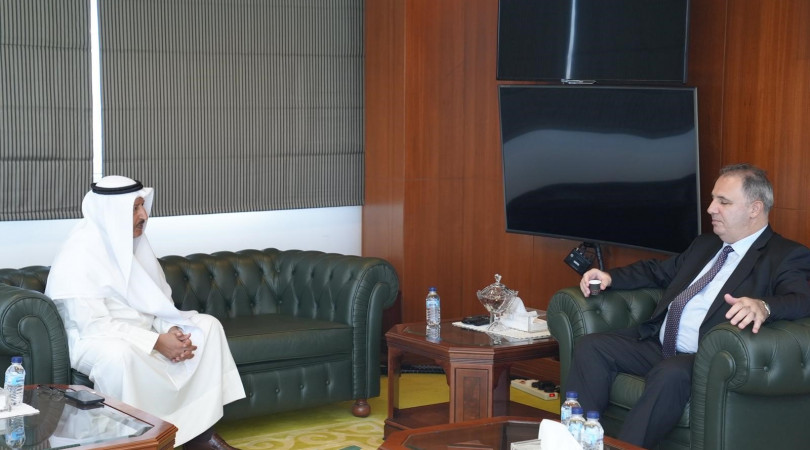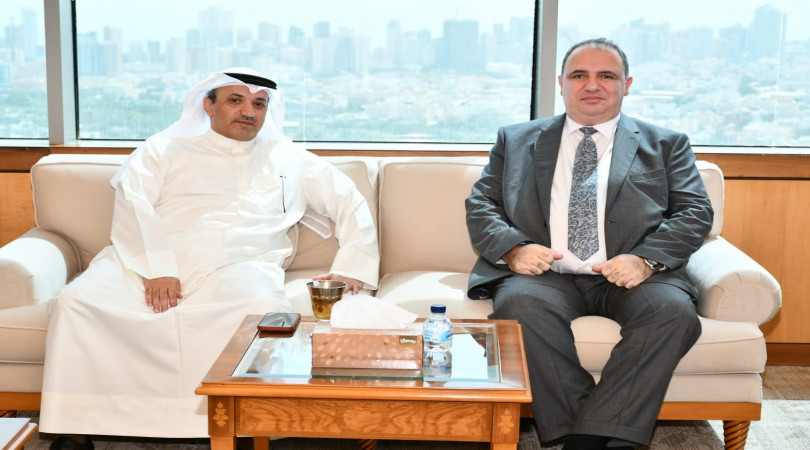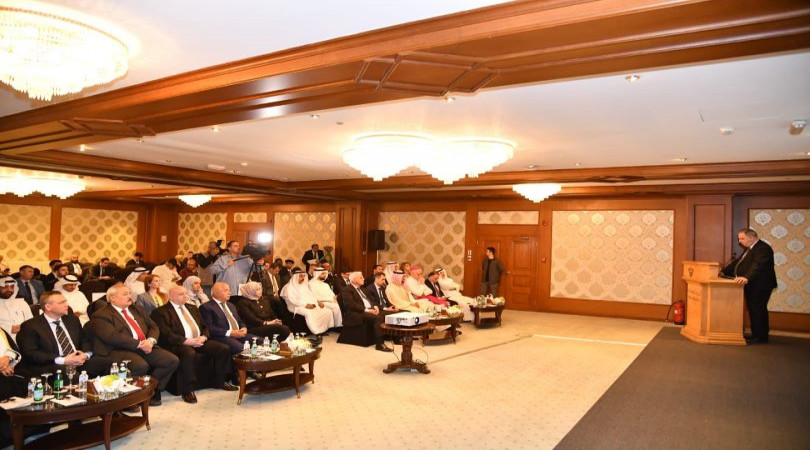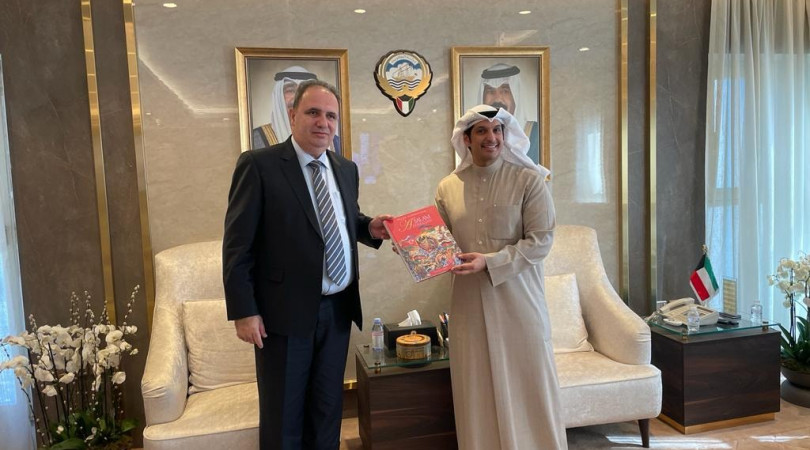STATEMENT of the Commissioner for Human Rights of the Republic of Azerbaijan(Ombudsman) on the 31 March – a Day of Genocide against the Azerbaijanis
The purpose of genocide, ethnic cleansing and deportation policy of the Armenian nationalists and their supporters against the Azerbaijanis, lasted over than two centuries, was banishing them from their historical native lands and establishing "Great Armenia" state on those territories.
From the beginning of XIX c., thousands of Armenian families were moved from Iran and Turkey onto historical territories of Azerbaijan such as Karabakh, Nakhchivan, Zengezur, also Iravan and other provinces.
As a result of the next aggression policy of Armenia since 1988, 20 percent of Azerbaijan territories, including Nagorno-Karabakh and seven adjacent regions have been occupied; one million of our compatriots became refugees and internally displaced persons (IDPs), whose rights had been severely violated.
The acts of genocide committed on 31 March, 1918, against the Azerbaijanis differ from other bloody tragedies against our people, because of its severe atrocities. Since March of 1918, the Armenian nationalists aiming at removal of the Azerbaijanis from Baku and surrounding areas, under the pretext of the Baku Community fighting against counter-revolutionaries, murdered Azerbaijani civilians on the ground of their ethnicity, set on fire the houses and burned the people alive, also, destroyed rare historical monuments, schools, hospitals and mosques.
The massacres committed by the Armenian-Bolshevik forces in Baku gained mass scale on March 31 and April 1-2 and innocent civilians were killed mercilessly. During those massacres, hundreds of thousands of Azerbaijanis in the whole country territory, including over 30 000 of habitants of Baku and surrounding areas were brutally murdered on the ground of nationality. During that period, Armenians scattered shelling many old buildings, including Ismailliyya building, which is one of the pearls of the world architecture; the minarets of Juma and Tazapir mosques were severely damaged; the corps of the people killed in Kervansaray were burned on place.
The genocide of the Azerbaijanis in Baku, Shamakhi, Guba, Kurdamir and Salyan, Karabakh, Zangezur, Nakhchivan and Lankaran provinces were committed with special cruelty. During March events, 75 villages of Shamakhi were totally destroyed and 7000 people have been murdered. Research documents consisting of 7 Volumes and 925 pages about the acts of genocide committed in Shamakhi and neighboring villages stored in the archives once more evidenced the large scale of these slaughters. According to the historical sources, sending of 60 trucks of ammunition and 2000 Armenian armed forces to Shamakhi in the middle of March was an evidence of initial preparation to this massacre.
These bloody events occurred in Guba province at the same scale, the Armenian armed groups burned 122 villages, killed innocent persons, including women and 2 children. About 40 villages were destroyed in Lenkaran province, hundreds of innocent people were killed, numerous houses were destructed and burned.
In general, in that period hundreds of thousands of our compatriots were massacred in Azerbaijan. In spite of years passed those bloody events were not forgotten and they left indelible impressions in memory of our people.
Within last period, there were recently found evidences ascertained mass slaughters of 1918 committed by the Armenian separatists in Guba province. Innumerable human bones found, are visual evidences of their savagery and vandalism during these slaughters. There was created Guba Genocide Memorial Complex as evidence and in memory of savagely murder of dozen thousands of people in this region.
This should be noted that by the Decree signed by President Heydar Aliyev “On the Genocide of the Azerbaijani people" dated March 26, 1998, provided political recognition to these events and for the first time was officially declared the fact of genocide against the Azerbaijanis committed by the Armenians. Besides, 31 March is annually commemorated as a Day of Genocide of the Azerbaijanis at the state level.
Under international law, as a grave international crime, genocide is included to such group of crimes as aggression against the international peace and security, crime against humanity, war crimes and international terrorism. The elements of the crime of genocide were determined by the Convention on the Prevention and Punishment of the Crime of Genocide adopted by the UN General Assembly Resolution No. 260 (III) dated December 9, 1948. According to the Convention, genocide is an act committed with intent to destroy, in whole or in part, a national, ethnic, religious, or racial group. Each of these elements of the crime against humanity, which are also envisaged in this international document, was committed by the Armenians against the Azerbaijanis during March events in 1918 and therefore, from the legal perspective, this should be recognized as genocide.
These events showed that the Armenian nationalists did not give up their notorious purposes, massacred civilians by cruel methods and falsified the history converting facts to their own use to curtain the crime committed.
The occupied Nagorno-Karabakh and the adjacent regions are an integral part of Azerbaijan. In spite of that there were adopted well-known four Resolutions on territorial integrity and unconditional liberation of the occupied territories of Azerbaijan by the UN Security Council, the UNGA adopted the Resolution titled "the Situation in the occupied territories of Azerbaijan" of March 14, 2008, the Resolution No. 1416 and the Recommendation No. 1690 of 2005, adopted by the Parliamentary Assembly of Council of Europe confirming the occupation of the Azerbaijani territories by the Armenian armed forces and governing the Nagorno-Karabakh by separatists, Armenia still refuses to fulfill those documents. However, these Resolutions recognized Armenia as an aggressor and demanded to withdraw its military forces from the occupied Azerbaijani territories and to create possibilities for one million Azerbaijani refugees and IDPs to return to their native lands.
In general, Azerbaijan always tries for peaceful solution of the Nagorno-Karabakh conflict. The President of the Republic of Azerbaijan Ilham Aliyev repeatedly declared that we would achieve the restoration of our territorial integrity.
The world community provides more and more support to the just position of Azerbaijan and it is interested in peaceful settlement to this conflict within the frames of international legal norms. This should be mentioned that the New York Senate and New Jersey General Assembly of the United States passed Resolutions recognizing 31 March as a Day of Genocide of the Azerbaijanis.
We once more declare that at the international level this genocide has not been yet given legal assessment. Requesting the world community and international organizations, we believe that the long-lasting Armenian aggression against Azerbaijan, mass human rights violations will be ended and the conflict will be solved by peaceful and reconciliation means.
We urge international organizations to support the just position of Azerbaijan without double standards and we believe that justice will be restored soon, this violent crime committed against humanity will be given international legal assessment as an act of genocide, perpetrators will be punished, the competent international organizations will impose sanctions on Armenia, severely violated rights of one million refugees and IDPs will be restored and prisoners of war and hostages will be released.
We hope all well-known international organizations and peacemakers will join efforts for the restoration of peace and security in Azerbaijan. The necessary condition will be achieved for sustainable development in our country and cooperation in the region. Real opportunities will be created for the promotion of the universally recognized fundamental human rights and freedoms of everyone without discrimination on any ground.
Elmira Suleymanova
Commissioner for Human Rights
(Ombudsman) of the Republic of Azerbaijan
28. 03. 2016
The Statement is addressed to the Secretary-General of the United Nations, United Nations Security Council, United Nations High Commissioner for Human Rights, European Commission, Council of Europe, Organization for Security and Cooperation in Europe, International and European Ombudsman Institutes, Asian Ombudsman Association, International Peace Bureau, Ombudspersons of different countries, Embassies of Azerbaijan abroad, as well as the foreign Embassies in Azerbaijan and Azerbaijani Diaspora.

















